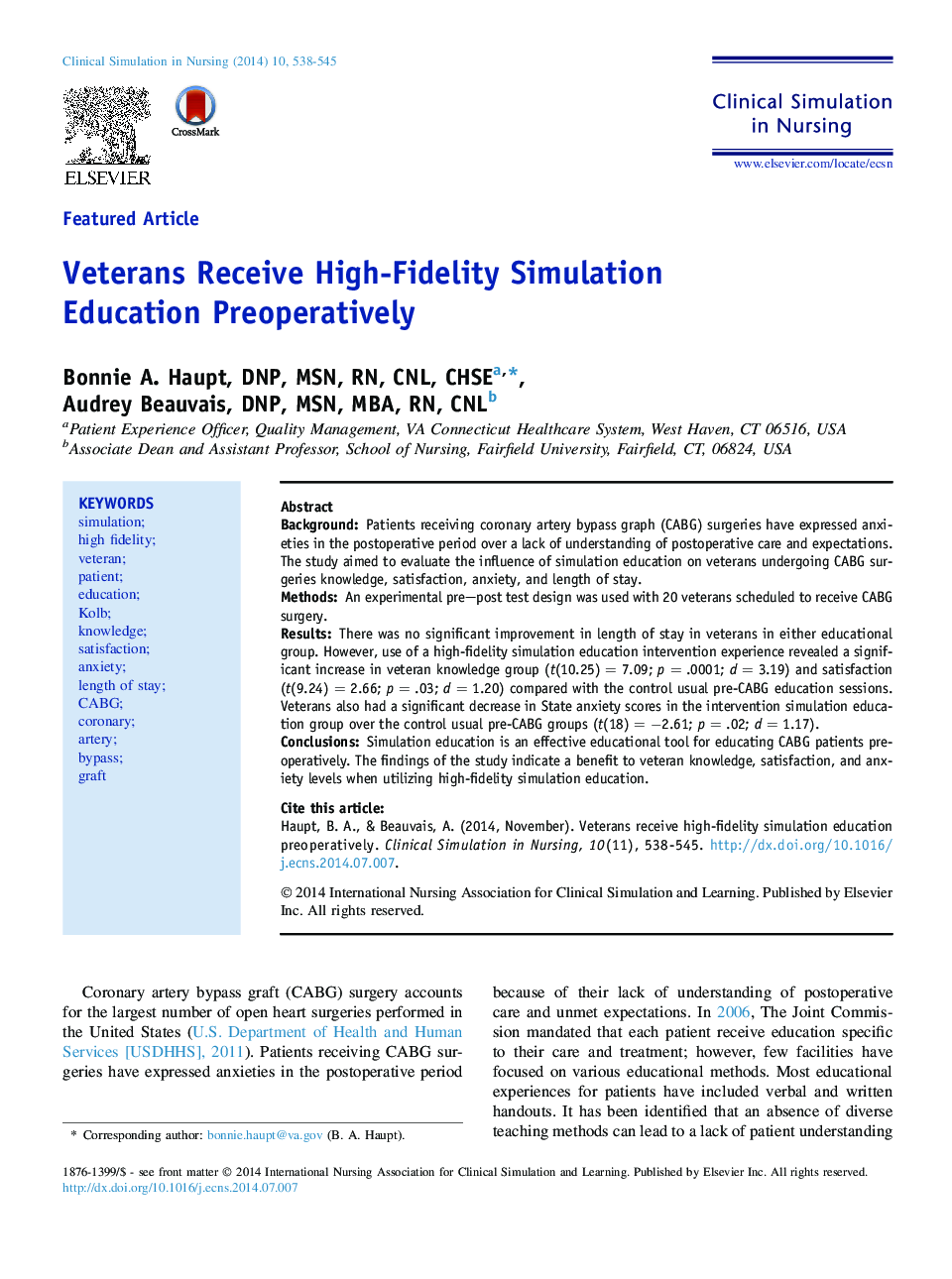| Article ID | Journal | Published Year | Pages | File Type |
|---|---|---|---|---|
| 2646441 | Clinical Simulation in Nursing | 2014 | 8 Pages |
•Instructing patients utilizing high-fidelity simulation education before surgery.•High-fidelity simulation education intervention increased patient knowledge.•A significant decrease in anxiety scores was seen after the simulation education.•Satisfaction in simulation education was greater than traditional education method.
BackgroundPatients receiving coronary artery bypass graph (CABG) surgeries have expressed anxieties in the postoperative period over a lack of understanding of postoperative care and expectations. The study aimed to evaluate the influence of simulation education on veterans undergoing CABG surgeries knowledge, satisfaction, anxiety, and length of stay.MethodsAn experimental pre–post test design was used with 20 veterans scheduled to receive CABG surgery.ResultsThere was no significant improvement in length of stay in veterans in either educational group. However, use of a high-fidelity simulation education intervention experience revealed a significant increase in veteran knowledge group (t(10.25) = 7.09; p = .0001; d = 3.19) and satisfaction (t(9.24) = 2.66; p = .03; d = 1.20) compared with the control usual pre-CABG education sessions. Veterans also had a significant decrease in State anxiety scores in the intervention simulation education group over the control usual pre-CABG groups (t(18) = −2.61; p = .02; d = 1.17).ConclusionsSimulation education is an effective educational tool for educating CABG patients preoperatively. The findings of the study indicate a benefit to veteran knowledge, satisfaction, and anxiety levels when utilizing high-fidelity simulation education.
